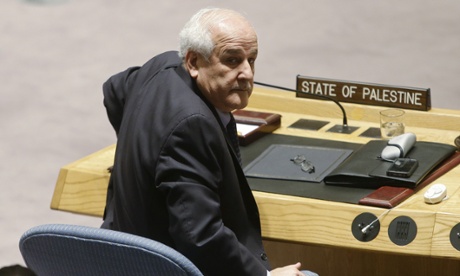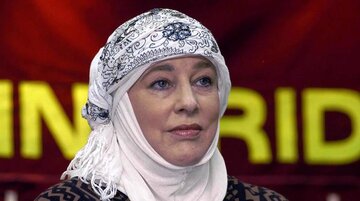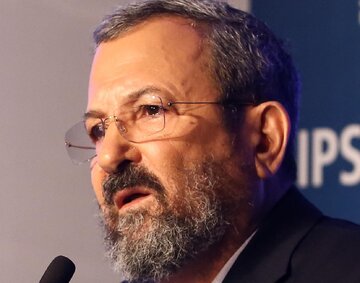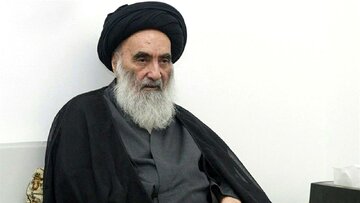Australia’s relationship with Palestinians and the Arab world will be damaged by its decision to vote against a United Nations resolution that demanded the end of Israeli occupation within three years, the chief Palestinian representative in Canberra has warned.
Australia was one of only two nations, along with the United States, Israel’s closest ally, to vote against the resolution.
Five other nations, including Britain, abstained from the vote, meaning that just eight of the 15 UN security council nations voted in favour of the resolution – one vote short of nine necessary for passage.
Izzat Abdulhadi, head of the general delegation of Palestine to Australia and New Zealand, said he was surprised at Australia’s vote as he expected it would “at least” abstain.
“It was very disappointing and regrettable ... and will unfortunately affect relations with Palestine and the Arab world,” Abdulhadi told Guardian Australia.
“It’s really very disappointing and I can’t understand why the decision was taken. We don’t know what the reasons are for this.”
Abdulhadi claimed there had been a shift in Australia’s position on the long-running conflict, citing what he viewed as a new Australian stance on East Jerusalem.
“There is a policy shift in Australia’s voting position, as represented with the East Jerusalem issue,” Abdulhadi said. “I hope there will be a discussion with Australia on the issue and an opportunity for engagement with the foreign minister.”
He added that Palestinians would continue the process of getting international support, despite the “bad advice from US and Australia to wait before continuing the process”.
Even if the required nine UN votes were achieved, the US would have been able to use its veto power as a permanent member of the security council. China, Russia, Britain and France are the other veto-wielding permanent members, with Australia among the 10 non-permanent members.
The Palestinian resolution set out a year-long process for a “just, lasting and comprehensive peaceful solution” to the Israeli-Palestinian conflict, which it stipulated should include a “sovereign and viable” Palestinian state based on 1967 borders. All Israeli forces would withdraw from the occupied territory by 2017, under the resolution.
Gary Quinlan, Australia’s ambassador to the UN, said Australia was committed to a future where Israel and Palestine exist peacefully in side-by-side states.
Liu Jieyi, China’s permanent representative to the United Nations, said: “This draft reflects just demands of Arab states, including the Palestinian people, and is in accord with the relevant UN resolutions, the ‘land for peace’ principle, the Arab peace initiative and Middle Eastern peace roadmap.
“We express deep regret over the failure of the draft resolution to be adopted.”
Australia joined the security council last year. Its two-year term ends as 2014 draws to a close.
31 December 2014 - 07:47
News ID: 661786

Warning from the chief Palestinian representative in Canberra comes after Australia votes against the resolution demanding an end to Israeli occupation




